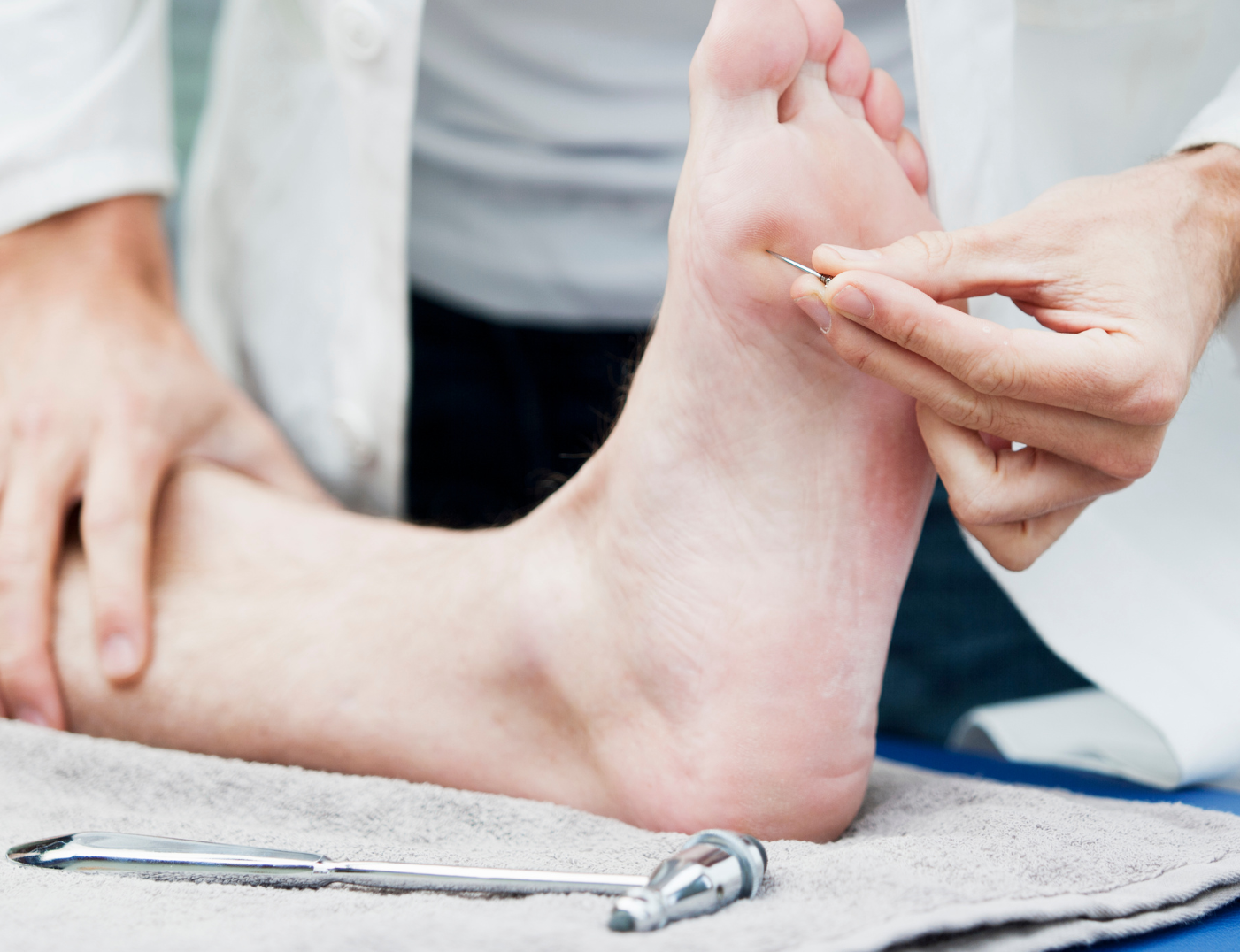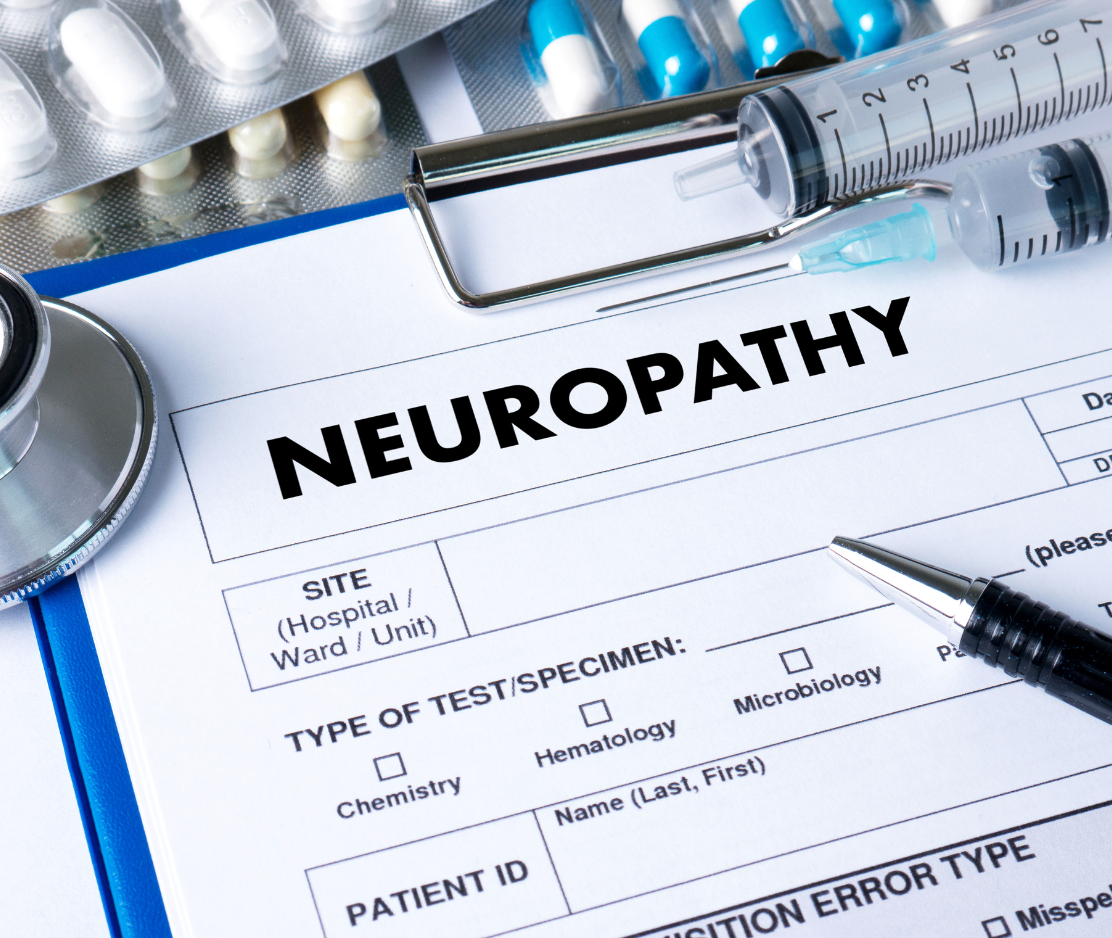Neuropathy Treatment In Peoria
What Is Neuropathy?
Neuropathy, a condition characterized by nerve damage, can disrupt your life with symptoms like numbness, tingling, and pain. We understand the toll it takes on your daily routine. That's why we are committed to offering treatments that truly work.
Our neuropathy treatment is designed to alleviate these symptoms and improve your overall well-being. By choosing our treatment, you can regain control of your life and enjoy the numerous benefits it provides.
How Neuropathy Affects Quality of Life
Did you know there are more than 20 million people in the United States who suffer from neuropathy? This condition is characterized by pain, tingling, and other uncomfortable sensations, and it disrupts the normal communication between nerves.
It's worth noting that women are disproportionately affected by neuropathy, and its occurrence dramatically rises after the age of 50. In addition to the discomfort it brings, neuropathy can also lead to infected wounds, bladder and digestive problems, and an increased likelihood of falling.
If you’re experiencing pain or a tingling sensation in your hands or feet, you may have neuropathy, or damage to your peripheral nerves. Starting treatment early may help prevent progression of the condition.
One Degree Functional Health specializes in the management and treatment of neuropathic pain and can help you.
5 Types of Neuropathic Pain
With more than 7 trillion nerves in the human body, the location of a damaged nerve can result in different forms of neuropathy.
- Peripheral Neuropathy: While neuropathy is often associated with peripheral neuropathy, it's important to note that there are several other forms as well. Peripheral neuropathy specifically targets the extremities, including the arms, legs, hands, and feet. Muscle weakness and numbness are common symptoms experienced by individuals with peripheral neuropathy.
- Autonomic Neuropathy: The autonomic nervous system is responsible for the automatic and involuntary functions of our body. It takes care of essential tasks such as breathing, digestion, heart rate, blood pressure, and more. If the autonomic nerves get damaged, it can disrupt everyday biological functions like using the restroom or controlling reflexes.
- Focal Neuropathy: Consider this form of neuropathy as targeting a specific area of the body, often caused by injury or infection.
- Proximal Neuropathy: If you ever experience numbness in your extremities, it could be a sign of proximal neuropathy. Along with that, you might also feel a tingling sensation and a prickly "pins and needles" feeling. It's important to pay attention to these symptoms and consult a healthcare professional for proper diagnosis and treatment..
- Diabetic Neuropathy: Diabetic neuropathy is a common condition among individuals with diabetes, often impacting the hands and feet. Symptoms can range from mild discomfort to potentially life-threatening.

Common Causes of Neuropathy
There’s a long list of lifestyle, environmental and genetic factors that can lead to neuropathy, including:
- Diabetes
- Chemotherapy
- Environmental toxins
- Infections
- Vitamin deficiencies
- Autoimmune conditions
- Nerve trauma
- Chronic illnesses
- Alcoholism
- Genetic mutations
At One Degree Functional Health, we believe in uncovering the underlying cause of neuropathy in our patients so we can provide the best treatment possible. We take a comprehensive approach to relieving symptoms and finding long-lasting solutions.
Why One Degree Functional Health?
At One Degree Functional Health, we have a reputation of achieving favorable outcomes for our patients. Our high success rate is a result of our dedication to finding the underlying cause of neuropathy before developing a treatment plan.
For example, if neuropathy has been caused by an infection, we first address treating and curing the infection. If neuropathy results from nerve pressure, we determine what is causing the pressure and alleviate it. We have numerous treatment modalities, and we welcome the opportunity to further discuss these options with you or a loved one.
We appreciate that every patient is unique, and there is no single one-size-fits-all solution that works uniformly. Instead, we custom-tailor treatment plans to fit the individual needs of our patients. From pain management to nerve regeneration, our patients rely on us to use our experience and expertise to reduce and eliminate pain quickly.


